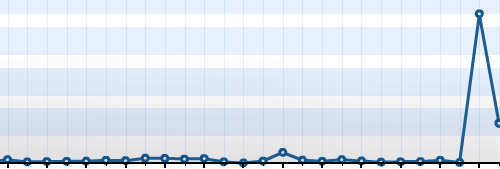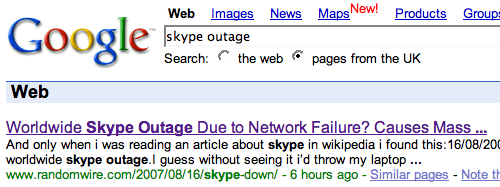My innocuous little post yesterday about the Skype Outage had some quite unexpected effects – within a few hours I’d had thousands of hits and nearly 100 comments from frustrated users around the world. It quickly became the most popular post on Randomwire since I started the blog over five years ago.

My WordPress hit stats went through the roof and the post was the no. 1 hit on Google.co.uk for “Skype Outage” and “Skype Down” as well as being on the first page of results for Google.com. I’m rather pleased that my post even comes above an article by The Times (one of the UK’s largest newspapers)!

It quickly became clear that the downtime was a pretty big deal with both individuals and businesses suffering as a direct result. 24 hours later and although some regions are slowly coming back online the network doesn’t seem to be in a usable state yet. My favourite comment so far…
“Finally! I see 3 million folks online. Relief, at last! with a realization that we’re so ardent slaves of technology!”
Worryingly it’s so true, perhaps this is the first time that the dependencies we have on IP-based communication technologies today have been demonstrated on such a large scale. It will be interesting to see how this affects Skype’s competitors and any other knock-on effects that may come out of this.

Reply